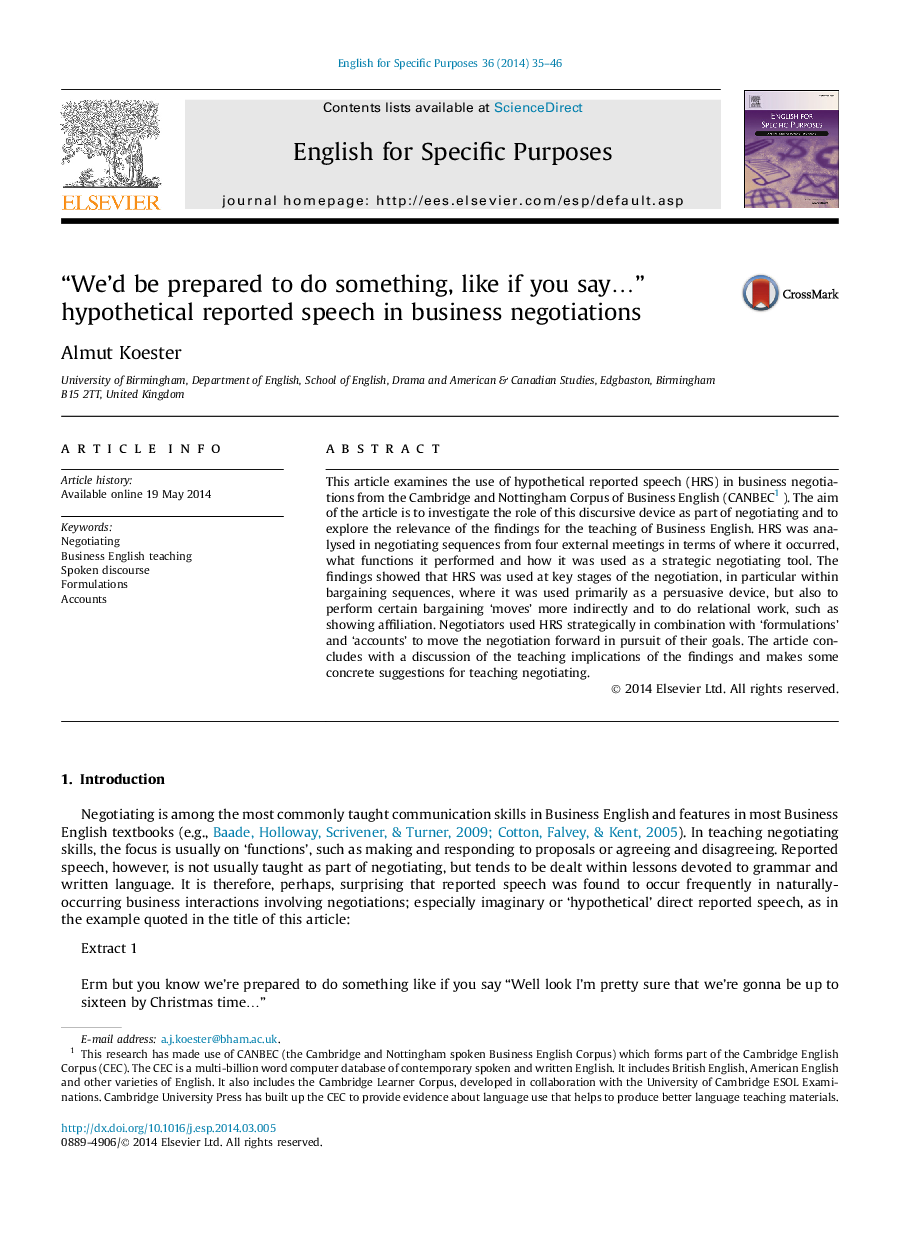| کد مقاله | کد نشریه | سال انتشار | مقاله انگلیسی | نسخه تمام متن |
|---|---|---|---|---|
| 355336 | 619267 | 2014 | 12 صفحه PDF | دانلود رایگان |
• Hypothetical reported speech (HRS) occurs frequently in business negotiations.
• HRS is used at key stages of the negotiation, for example in bargaining sequences.
• Functions of HRS: persuading, indirectness and relational work, e.g., affiliation.
• HRS combines with ‘accounts’ and ‘formulations’ to perform strategic negotiation work.
• The findings have clear implications and applications for teaching negotiating.
This article examines the use of hypothetical reported speech (HRS) in business negotiations from the Cambridge and Nottingham Corpus of Business English (CANBEC1 ). The aim of the article is to investigate the role of this discursive device as part of negotiating and to explore the relevance of the findings for the teaching of Business English. HRS was analysed in negotiating sequences from four external meetings in terms of where it occurred, what functions it performed and how it was used as a strategic negotiating tool. The findings showed that HRS was used at key stages of the negotiation, in particular within bargaining sequences, where it was used primarily as a persuasive device, but also to perform certain bargaining ‘moves’ more indirectly and to do relational work, such as showing affiliation. Negotiators used HRS strategically in combination with ‘formulations’ and ‘accounts’ to move the negotiation forward in pursuit of their goals. The article concludes with a discussion of the teaching implications of the findings and makes some concrete suggestions for teaching negotiating.
Journal: English for Specific Purposes - Volume 36, October 2014, Pages 35–46
